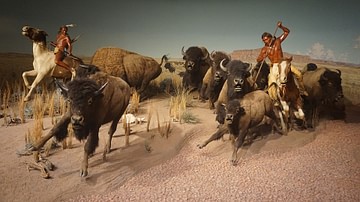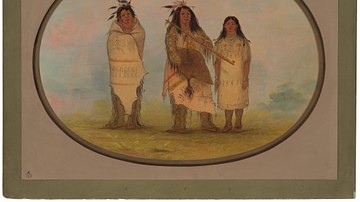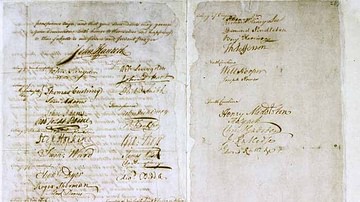Search Articles
Browse Content (p. 38)

Article
Cheyenne Creation Story
The Cheyenne Creation Story is the account of the beginning of the world, the seasons, and the first people in the time before time when all was water, and nothing existed but the Creator and aquatic birds. There are many versions of the...

Article
The Principate of Augustus
Augustus (r. 27 BCE to 14 CE), as the adopted son and heir of Julius Caesar (100-44 BCE), brought an end to the Roman Republic, and on 16 January 27 BCE, by Senatorial decree, he became the first Roman emperor. However, he would not be addressed...

Article
Buffalo and the Plains Indians
The buffalo were essential to the Plains Indians, and other Native American nations, as they were not only a vital food source but were regarded as a sacred gift the Creator had provided especially for the people. Buffalo (bison) supplied...

Article
The Life and Death of Sweet Medicine
The Life and Death of Sweet Medicine is a Cheyenne tale of the great prophet and law-giver Sweet Medicine who received the sacred Four Arrows, structure of government, and rules of society from Maheo, the Wise One Above, and predicted the...

Article
American Invasion of Quebec
The American invasion of Quebec (September 1775-June 1776) was a military campaign undertaken during the American Revolutionary War (1775-1783). Hoping to induce the Province of Quebec to join the rebellion, the Second Continental Congress...

Article
Cheyenne Legends of the Buffalo
Two popular Cheyenne legends are the Origin of the Buffalo and How the Buffalo Hunt Began (also known as The Great Race), both dealing with the importance of the North American bison to the Cheyenne nation. Like others of the Plains Indians...

Article
The Ghost Bride
The Ghost Bride is a story from the Pawnee nation on the danger of interacting with ghosts but also emphasizes the importance of keeping one's word, whether with the living or the dead. The young man in the tale does not know he is dealing...

Article
Olive Branch Petition
The Olive Branch Petition was a letter adopted by the Second Continental Congress on 5 July 1775 and sent to King George III of Great Britain (r. 1760-1820) in a final attempt at reconciliation in the early months of the American Revolutionary...

Article
The Girl Who Was the Ring
The Girl Who Was the Ring is a Pawnee legend committed to writing by the anthropologist George Bird Grinnell (l. 1849-1938) in his work The Punishment of the Stingy and Other Indian Stories (1901). The story highlights the Native American...

Article
Give Me Liberty or Give Me Death
"Give me liberty or give me death!” is the closing line from a speech made by Patrick Henry to the Second Virginia Convention on 23 March 1775, in which he argued that war with Britain was inevitable and a militia should be raised to defend...